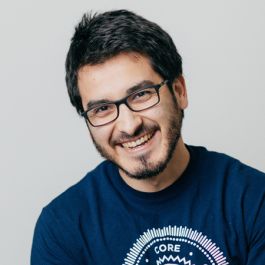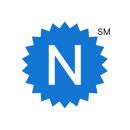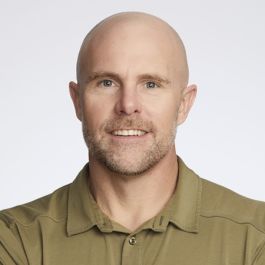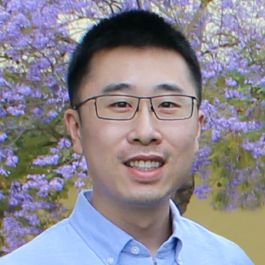The all-time, most hotly debated question on the engineering team at Notarize is not about light mode or dark mode, using spaces or tabs, or which language reigns supreme. It’s much more absurd than that. The query stands: “Is 20 a lot?”
No units. No context. Simply, is 20 a lot? The controversial question was jokingly posed at the end of a retrospective two years ago, but Engineering Manager Arturo Gonzalez maintains that, to this day, when the number pops up it’ll revive a lively, neverending debate.
“It’s surprisingly divisive. It’s a hot topic. Whenever someone mentions the number 20, I’ll get a ton of messages,” said Gonzalez.
This is just one example of the spirited nature of the engineering team at Notarize. It’s common to cap biweekly retrospectives with farcical debates and rousing questions, or if there isn’t a lot to discuss, the team uses the time to play Jackbox games or Code Names. The team socializes often, through virtual chats or weekend lunches to catch up. In Boston, some team members even utilize their monthly wellness day to coordinate beach hangs or rock climbing sessions.
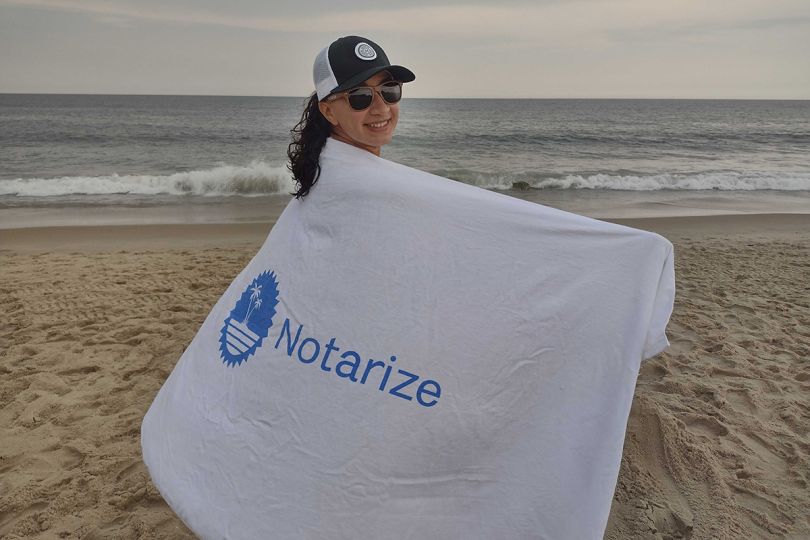
The playful atmosphere seems like a strange juxtaposition considering the staid nature of the industry they serve. The company is one of the first to modernize the centuries-old notarization process and is forging the way without existing models to build from.
Then again, perhaps this whimsy is a side effect of the team’s desire to shake things up. After all, they’re not creating a one-to-one replica of the centuries-old processes to tackle this paperwork challenge. The team is building new, more secure and more verifiable digital transactions. “We take the spirit of what paper is trying to do and use technology to actually do it,” said Gonzalez.
“We take the spirit of what paper is trying to do and use technology to actually do it.”
Notarization is often required for some of the most vulnerable moments in people’s lives, from buying a house to losing a passport in a different country, so the process needs to be irrefutable. “These engineers have tons of passion. This is impactful on people’s quality of life. It’s not just notarizing a document; there is someone who needs a will, adoption or name change papers notarized. People here have a connection to the mission,” said Chief Technology Officer Derek Knudsen.“That’s a big deal. You don’t want real estate transactions or living trusts to get overturned because the process wasn’t executed correctly.”
Yet despite the high stakes, notarization is a fun and fulfilling problem for engineers to tackle. We sat down with Gonzalez, Knudsen and back-end engineer Justin Zeng to learn more.
Gonzalez has a confession: He’s addicted to puzzles. “Once I start, I can’t stop. I’ll stay up until 3 a.m.,” he said.
That might be part of the reason why he’s stuck with Notarize for more than six years. Building a first-of-its-kind product without any existing models offers a stimulating conundrum for an engineer.
In the early days at Notarize, Gonzalez said the team learned a great deal from their attempts to recreate the paper process of notarization. “Then you realize you shouldn’t replicate it because the paper version is kind of bad. It’s surprising that the traditional process is considered trustworthy,” said Gonzalez. So the team would leverage the tools at hand to imagine a better digital version. “That’s why it is so interesting,” he added.
Take, for example, the verification process if someone must fight a notarization. Traditionally, notaries use a paper journal to write down a description of the document, a name, and sometimes a form of identification. The transaction is often one of the hundreds that the notary performed in that time. There isn’t a unique, indisputable fingerprint to the transaction, even though the technology exists to provide that authentication. “We have the opportunity for video, we have secure IDs, and we can look at the video to verify the notarization happened,” said Gonzalez.
But just because newfangled tech is available doesn’t always mean it needs to be included. “We try not to overdesign our product. We try not to go too far and build a functionality that never gets used,” said Gonzalez.
Here’s what else Gonzalez had to say:
On mentoring new employees: “I act as a guide for each member of my team. In the first one to three months we’ll have dedicated time once or twice a week for pair programming or talking through the application together. Sometimes new hires will be reluctant to speak up, but with dedicated time they can get comfortable asking those questions of me and their teammates.”
On communication: “There is a lot of cross-team education. Someone on our real estate team wasn’t understanding some of the comments I was leaving on his code reviews. We hopped on a call and spent an hour talking about design, best practices, where we are going and why. We have an action-oriented mindset, so we’ll often hop on huddles or meetings to rubber duck issues.”
On the rewarding work: “The longer employees work here, the more they realize how important these transactions are in people’s lives. You can’t fail them. What we are doing is important, and people need us. Making this process easier for them is a worthwhile endeavor.”
Racking Up Wellness Benefits
Recently, Knudsen was on a ski lift with a friend who was going to be leaving the country with his wife and kids but realized he’d forgotten to get an important document notarized. While on the ski lift he was able to download the Notarize app and get the notarization taken care of in 10 minutes, just in time to hit the slopes. “People aren’t victims of the notarization process anymore; we’ve changed the dynamic. It’s empowering folks in critical moments of their lives,” said Knudsen.
And it’s not just making a difference in the lives of consumers. In the platform’s two-sided marketplace, notaries can build careers, and enterprise clients are interested in having those established notaries serving their products. This is facilitating Notarize’s transition from a startup to a larger, more established company.
At the core of this transition, the culture is staying strong. “What you see and feel during the interview process is exactly what you walk in and experience,” said Knudsen. “We live it every day. In my years of consulting, I saw lots of company cultures. I’ve never seen a healthier culture anywhere, and that’s powerful.”
Though the culture is resilient, there is always room for improvement. Recently, the company distributed a culture and diversity, equity and inclusion survey. Knudsen will be looking at the results to help drive more tangible engagement across the organization. “We were not a remote-first culture before Covid-19, and we adapted. We’re going through the learning process of how to do these things in a remote-first forum and make more tangible investments,” said Knudsen.
Here’s what else Knudsen had to say:
On professional development: “Notarize is in the process of finalizing learning tracks with its Udemy subscription for the engineering team. This helps employees get on a professional development track by learning technical skill sets such as back-end API or React. The intent is to let folks have a common forum to talk about the evolution of skills and best practices. Most of that stuff right now is organic, but we want to add structure and autonomy to help them create their own plans.”
On digitizing notarization: “Historically these kinds of paper processes were unsupervised. It operates on the honor system. With video recording, everything becomes auditable and creates a higher level of accountability. It’s more trustworthy. Notarial law is somewhat open for interpretation in online spaces, so it’s exciting to have that flexibility.”
On strategy: “The technical leaders are getting involved in larger strategic initiatives at Notarize. This Thursday we’re having our first technical role mapping activity, where leaders brainstorm our 12- to 24- month technical roadmap. We’re making a transition from startup to an enterprise software company and putting opportunities in place for folks to step up.”
Walking the Walk With Wellness
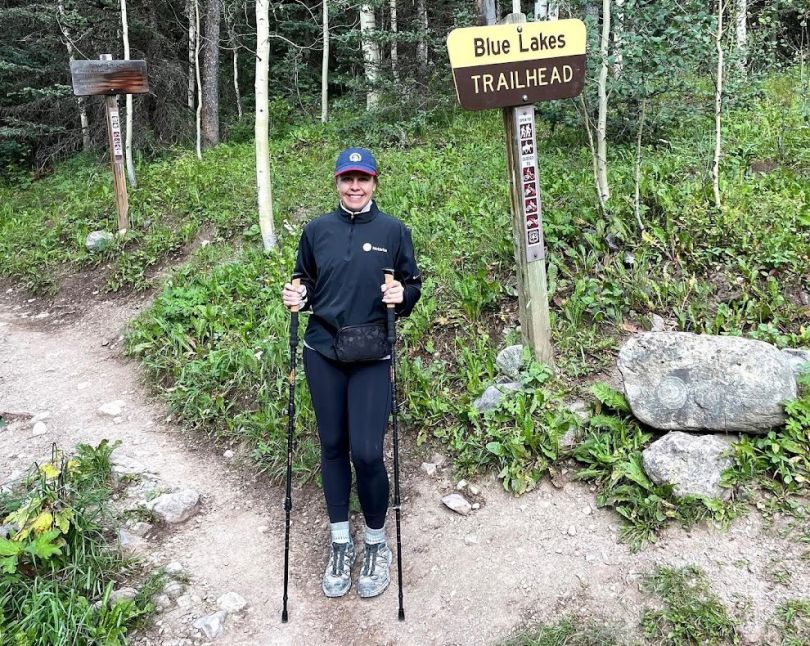
Zeng has been at Notarize for just under one year, and he’s looking forward to taking advantage of his $500 learning and development stipend after he celebrates his first anniversary. In the meantime, however, Notarize introduced a Udemy subscription for employees to level up skills in the technology, communications and leadership realms, which he’s excited to take advantage of.
Additionally, Zeng said mentorship is built into the culture. “I can reach out to my manager or teammates with questions about how to elevate my career,” he said.
That easy communication is noticeable throughout the team. Though there’s an active effort to prevent schedules from getting bogged down with meetings, the team stays connected through daily stand-ups, biweekly retrospectives and monthly all-hands meetings. Zeng also connects with his manager regularly in one-on-one syncs.
Here’s what else Zeng had to say:
On his average day: “After the morning stand-up, I spend time on JIRA tickets, squashing bugs or putting out the features I am working on. It allows me to learn about the codebase and learn best practices. As I gain familiarity, I can bounce ideas off of my teammates. Those conversations are meaningful, fun and exciting.”
On product development: “Each quarter, I work on one or two projects. Every quarter the product manager shares a virtual board where everyone can put sticky notes with ideas that will help the customer. Then we vote on the ideas, talk about the winners and see if it’s feasible to build them out. We’ve built on a few ideas this way.”
On the culture: “In terms of culture-building, every month we have a virtual engineering hangout to build rapport and play games. We also have smaller huddles throughout the week for random chats and to catch up or share photos. We ask pretty silly icebreaker questions to get people to open up, like, ‘Who would you choose to be on your team during a zombie apocalypse?’ These questions allow us to build rapport and get to know each other a little better.”



